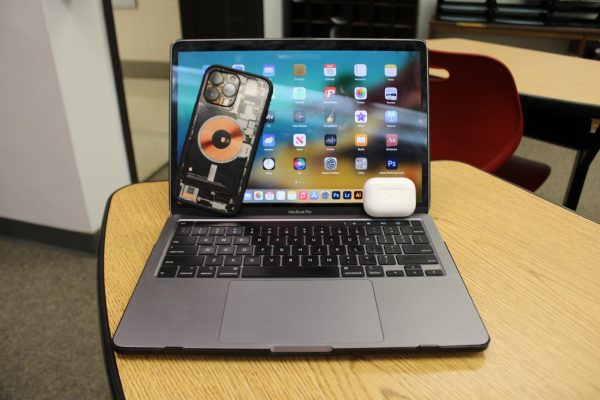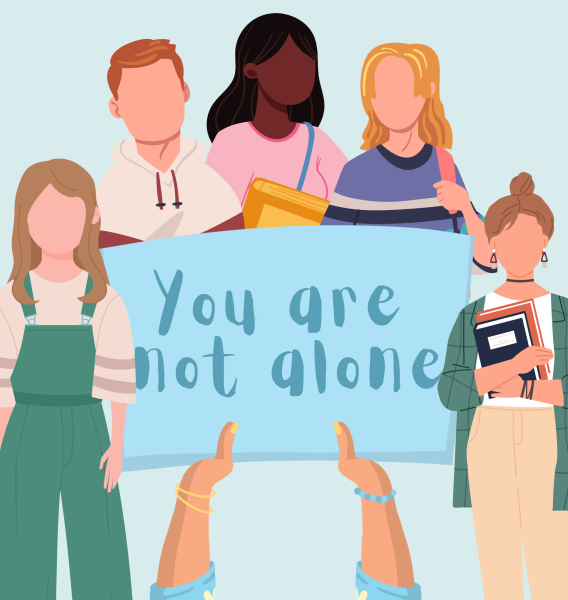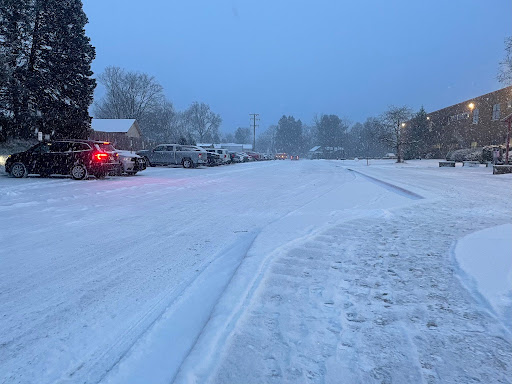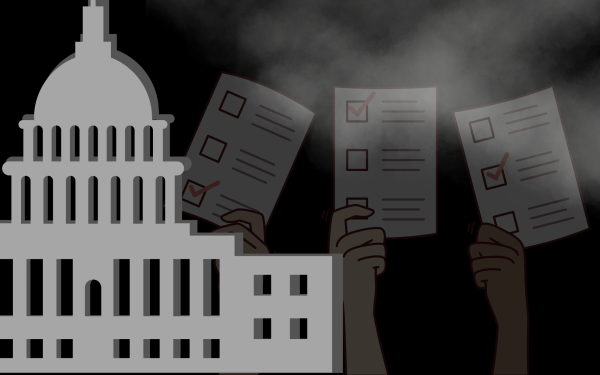Cybersecurity or cyber prison?
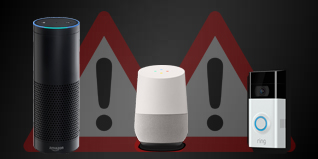
Shown above are electronic devices that all have risks of being hacked.
We’ve all seen the frightening reports of people hacking into security cameras. People find out that some stranger has been watching their every move or listening to their conversations. Isn’t it crazy how the thing many install into their homes to feel safer is now something that is jeopardizing their safety?
Only 20% of homes in America have security systems installed in them, according to ipvm.com. This number will likely rise with more families switching to electronic households. Companies have recently released products that are becoming more and more popular, including Amazon’s Ring Doorbell, Amazon Alexa, Google Nest and many more.
Products like Amazon’s Alexa and Google’s Nest both operate similarly. Both devices actively listen constantly to what is going on around them and “wake up” when someone says their name. One thing that many people don’t think about is the concept of the device hearing everything that you say constantly.
Like all technology, security systems too can be hacked, and taken over by outside people who end up figuring out your password. This leads to huge risks and dangers for the people who live in that household especially if the household is a smart household, where the stranger could control different aspects of the house.
For example, one family in Mississippi had a Ring security camera installed in their daughter’s bedroom. The device they added to their room as a lifesaving extra set of eyes became a nightmare for the family. While their daughter was in her room alone the man started to play music through the devices built-in speaker. Then a parent’s true nightmare took place. The man who hacked into the device started talking to the couple’s daughter, saying he was “Santa Claus”. This isn’t the only time that this has taken place, several other families have been affected by someone hacking into their home security systems.
The negatives of security cameras don’t just stop at the possibility of someone taking advantage of someone’s home; the idea of having a recording system that listens in on every room’s conversation could lead to the household feeling on edge. If someone knew that a stranger was in their house listening to their every word, would they feel safe or violated? The idea of having these machines in homes brings a feeling of paranoia and maybe even a sense of bitterness knowing that a family member doesn’t trust everyone in the house.
Now, the idea of having security cameras that records the outside of your house or having an alarm installed to tell if someone is breaking in is honestly a very smart decision. But to have a product that can remotely turn on and off things in your house with a click of a button through an app might not be the best decision. How about having several devices around your house that listen to everything going on, or devices that you can talk through as you watch what is happening? Although they may sound cool at first, these devices have a serious downside to them.
All in all, the desire to feel safe isn’t something new and crazy; it’s a rational feeling. However, there is a fine line between security and surveillance.



